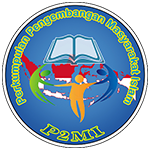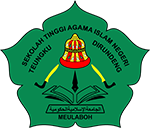Memperkuat Peran Perempuan dalam Dakwah Berkemajuan di Era Digital: Strategi Pemberdayaan dan Literasi Dakwah di Organisasi Nasyiatul Aisyiyah
DOI:
https://doi.org/10.47498/meuseuraya.v4i1.5396Keywords:
Pemberdayaan Perempuan dalam Dakwah, Literasi Digital Keislaman, Dakwah Berkemajuan Nasyiatul AisyiyahAbstract
Abstract
Rapid social changes in the digital era demand more relevant, inclusive, and adaptive Islamic preaching. Preaching is now not enough to rely on conventional methods, but needs to reach the digital space as the main media for spreading Islamic values. In this context, women, especially Nasyiatul Aisyiyah cadres, have a strategic role as agents of change who are able to voice enlightening and liberating preaching messages. Based on these needs, the Bima Regency Nasyiatul Aisyiyah Regional Leadership Muballighat Training was carried out to strengthen the role of women through empowerment strategies and digital preaching literacy. This training aims to equip muballighat with theoretical understanding and practical skills in ethical and progressive digital preaching. The three main aspects emphasized are the concept of Muhammadiyah's progressive da'wah, the theory of women's empowerment in public spaces, and digital literacy for the production of moderate and educational da'wah content. The activities are designed in a participatory manner through discussions, digital content practices, and critical evaluation of Islamic narratives that develop on social media. Participants are introduced to the values of tajdid, rationality, and social justice as pillars of progressive da'wah. Women are positioned as active, humanistic, and empathetic subjects of da'wah. The theory of women's empowerment emphasizes the importance of increasing self-capacity, space for expression, and access to technology as a tool for da'wah. Furthermore, digital literacy focuses on technical skills and critical thinking skills, including in sorting information, responding to hate speech, and conveying Islamic messages wisely.
Keywords: Women's Empowerment in Da'wah, Islamic Digital Literacy, Progressive Da'wah Nasyiatul Aisyiyah
References
Gilster, P. (1997). Digital Literacy. New York: Wiley & Sons.
Mutiara, D., & Kurnia, N. (2023). Strategi Literasi Digital dalam Organisasi Nasyiatul Aisyiyah: Komunikasi Ideologis dan Sosial Media. Jurnal Komunikasi Islam, 13(2), 112–128. https://doi.org/10.21580/jki.2023.13.2.1451
Umar, R. (2025). Nasyiatul Aisyiyah dan Tantangan Dakwah Digital. Suara Muhammadiyah. https://suaramuhammadiyah.id/nasyiatulaisyiyahdigital
Kabeer, N. (1999). Resources, Agency, Achievements: Reflections on the Measurement of Women’s Empowerment. Development and Change, 30(3), 435–464. https://doi.org/10.1111/1467-7660.00125
Mahanani, P. A. R., Pratiwi, F. D., Ifriqia, F., & Sari, N. P. (2023). Mastering Digital Media Literacy of Muslim Woman's Activists in Preventing Online Gender-Based Violence. Profetik: Jurnal Komunikasi, 16(1), 25–36. https://doi.org/10.14421/pjk.v16i1.3097
Mutiara, D., Kurnia, N., & Riyanto, A. (2023). Strategi Literasi Digital dalam Organisasi Nasyiatul Aisyiyah: Komunikasi Ideologis dan Sosial Media. Jurnal Komunikasi Islam, 13(2), 112–128. https://doi.org/10.21580/jki.2023.13.2.1451
Umar, R. (2025). Nasyiatul Aisyiyah dan Tantangan Dakwah Digital. Suara Muhammadiyah. https://suaramuhammadiyah.id/nasyiatulaisyiyahdigital
Asriani, D. D. Perempuan Muda Di Internet: Pengalaman Menghadapi Dan Melawan Kekerasan Berbasis Gender Online. Jurnal Analisa Sosiologi, 13(1). https://jurnal.uns.ac.id/jas/article/view/77432
Jamil, N., Bm, S. A., & Haruna, R. (2022). Peran Organisasi Nasyiatul Aisyiyah Kota Makassar Dalam Meningkatkan Kualitas Dakwah Perempuan. Washiyah: Jurnal Kajian Dakwah dan Komunikasi, 3(4). https://journal3.uin-alauddin.ac.id/index.php/washiyah/article/view/33337
Kawaru, S., Nilwana, A., & Juana, J. (2024). Pemberdayaan Perempuan Terhadap Pemanfaatan Ekonomi Digital: Peran Nasyiatul Aisyiyah dalam Meransang Kewirausahaan Wanita di Kabupaten Sidenreng Rappang. Jurnal Kreativitas Pengabdian Kepada Masyarakat (PKM), 7(7), 3160-3171. DOI: https://doi.org/10.33024/jkpm.v7i7.15288
Mahanani, P. A. R., Pratiwi, F. D., Ifriqia, F., & Sari, N. P. (2024). Mastering Digital Media Literacy of Muslim Woman's Activists in Preventing Online Gender-Based Violence. Profetik: Jurnal Komunikasi, 17(1). DOI: https://doi.org/10.14421/pjk.v17i1.3097
Mutiara, D., Kurnia, N., et al. (2023). Strategi Komunikasi Organisasi Keagamaan Perempuan & Pengetahuan Literasi Digital: Studi Literasi Media Sosial Ibu Dan Anak Pada Organisasi Nasyiatul ‘Aisyiyah [Tesis S2]. UGM.
Rusydi Umar. (2025, May 21). Nasyiatul ‘Aisyiyah dan Tantangan Peradaban Digital. Suara Muhammadiyah.
Saragih, J. F. L., Faradilla, A. J., Nasution, R. A., Tafonao, D. F. A., Pitaloka, D., Amelia, B., & Dongoran, D. (2024). Menutup Kesenjangan Digital: Studi tentang Meningkatkan Kehidupan UMKM Melalui Literasi Digital. Jurnal Kolaboratif Sains, 7(5), 1788-1795. DOI: https://doi.org/10.56338/jks.v7i5.4290
United Nations Broadband Commission. (2015). UN: 'Urgent Action' Needed On Cyber Violence Against Women. WIRED UK.
Setyaningsih, R., Santoso, D. H., & Nurwahid, A. F. (2024). Digital Literacy Of Social Media Users In Preventing Online Gender‑Based Violence In Indonesia. Journal of Ecohumanism, 3(8). DOI: https://doi.org/10.62754/joe.v3i8.5198







